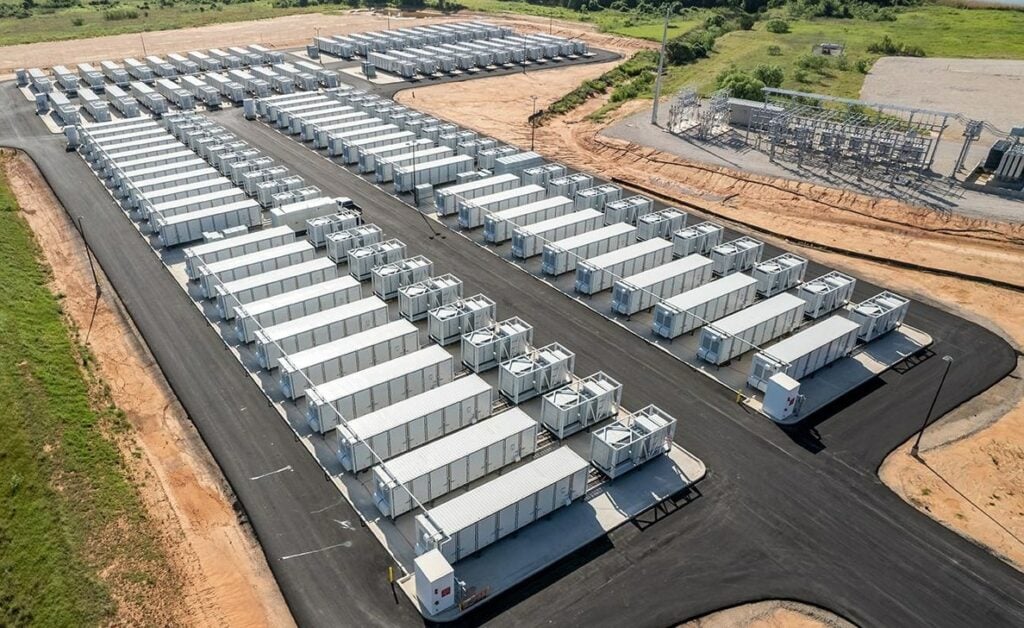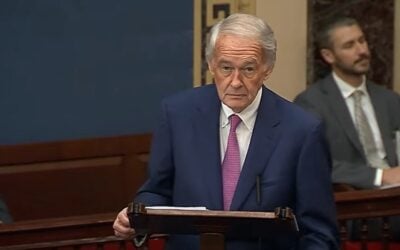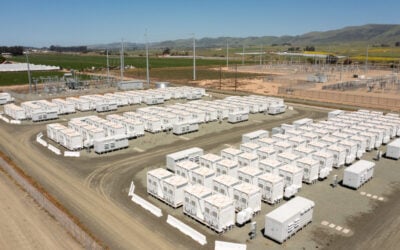
Battery storage operators in the ERCOT, Texas market have vociferously opposed the grid operator’s proposed rule changes around state of charge information and availability (NPRR 1186).
NPRR (Nodal Protocol Revision Request) 1186 is being proposed in order to improve the awareness, accounting and monitoring of state of charge (SOC) for energy storage resources (ESRs) in the ERCOT market while longer-term reforms are implemented, ERCOT said.
Enjoy 12 months of exclusive analysis
- Regular insight and analysis of the industry’s biggest developments
- In-depth interviews with the industry’s leading figures
- Annual digital subscription to the PV Tech Power journal
- Discounts on Solar Media’s portfolio of events, in-person and virtual
“The implementation of this NPRR will allow ERCOT to confidently evaluate the capability of these ESRs for the key hours in which the need for dispatchable generation is needed,” the state’s grid operator added.
In practice, it will mean energy storage resources will have to arbitrarily withhold more energy than they actually need to use, developer and battery storage resource operator Eolian said in response to the proposal. Eolian operates one of the largest battery energy storage system (BESS) units in the state.
When providing new ancillary service ECRS (ERCOT Contingency Reserve Service), for example, energy storage units will need to hold two hours’ charge for every MW dispatched into the service.
Eolian said the need to hold more energy than needed will actually reduce system reliability, by forcing resources to charge from the grid during dispatch events.
Jupiter Power, also amongst the largest BESS operators in Texas, echoed Eolian’s comments in its response to the NPRR proposal and said it would prevent developers from deploying longer-duration projects in the state (the market standard is two hours).
“This proposed approach also potentially creates an artificial ‘scarcity’ problem whereby available, uncommitted capacity is held back from the market, and disincentivises developers to increase the duration of their energy storage resources and build multi-hour storage systems if they are forced to ‘withhold’ that additional capacity from participating across the range of market services in the first place,” it said.
Aspire Power, an energy trader, also voiced opposition to the changes which it said would have “adverse effects” on the “already challenged ECRS market and on the efficient operation of the grid”.
It highlighted that making it easier for energy storage units to participate in the ECRS market without hinderance – which NPRR 1186 would do the opposite of – would reduce costs to the end-consumer.
All three companies said the NPRR had also been moved through the approval process too quickly, and that further analysis was needed.
The ERCOT, Texas grid-scale BESS market is set to grow substantially this year and next, as Energy-Storage.news has written extensively. The state accounted for 70% of BESS deployments in the US in the first quarter of the year. As of 1 June, 2023, there were 3.3GW of BESS energised on the ERCOT grid, it said, and that is expected to increase to 9.5GW by October 2024.






